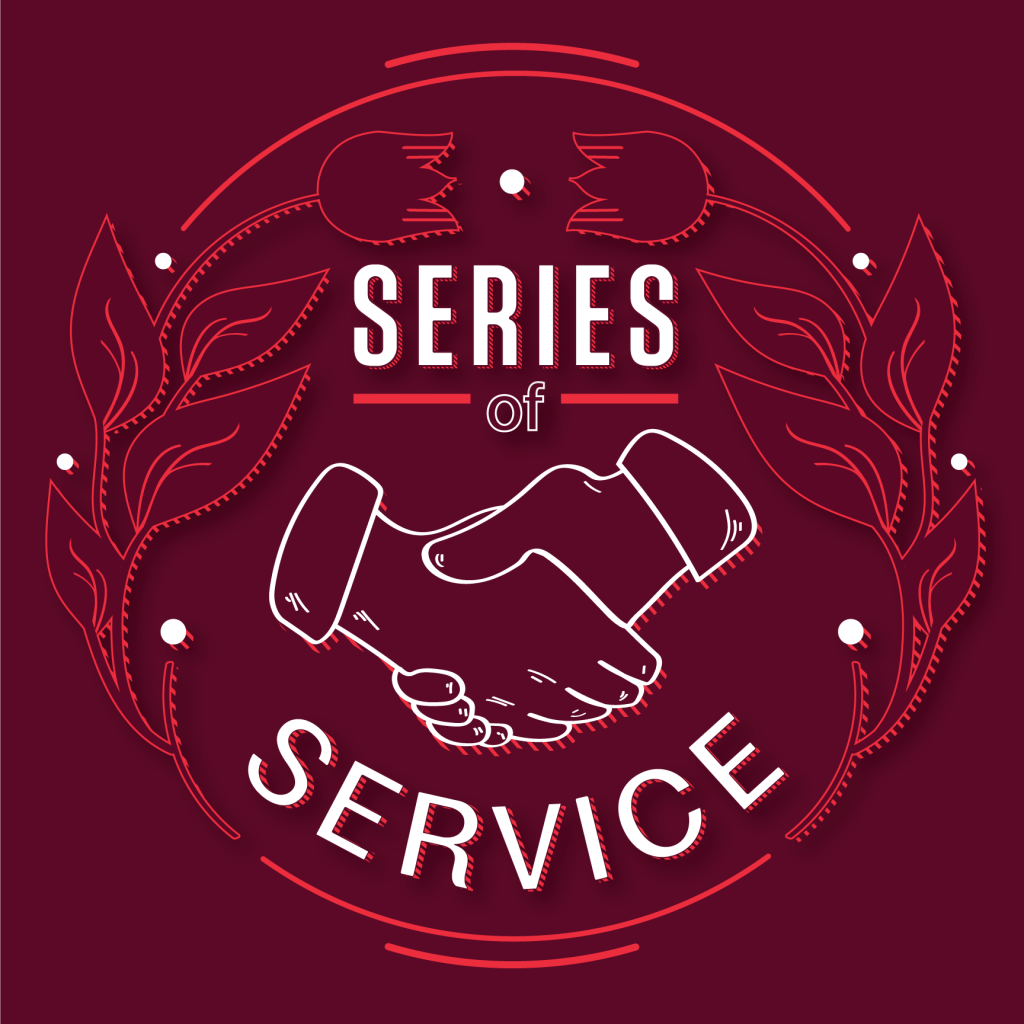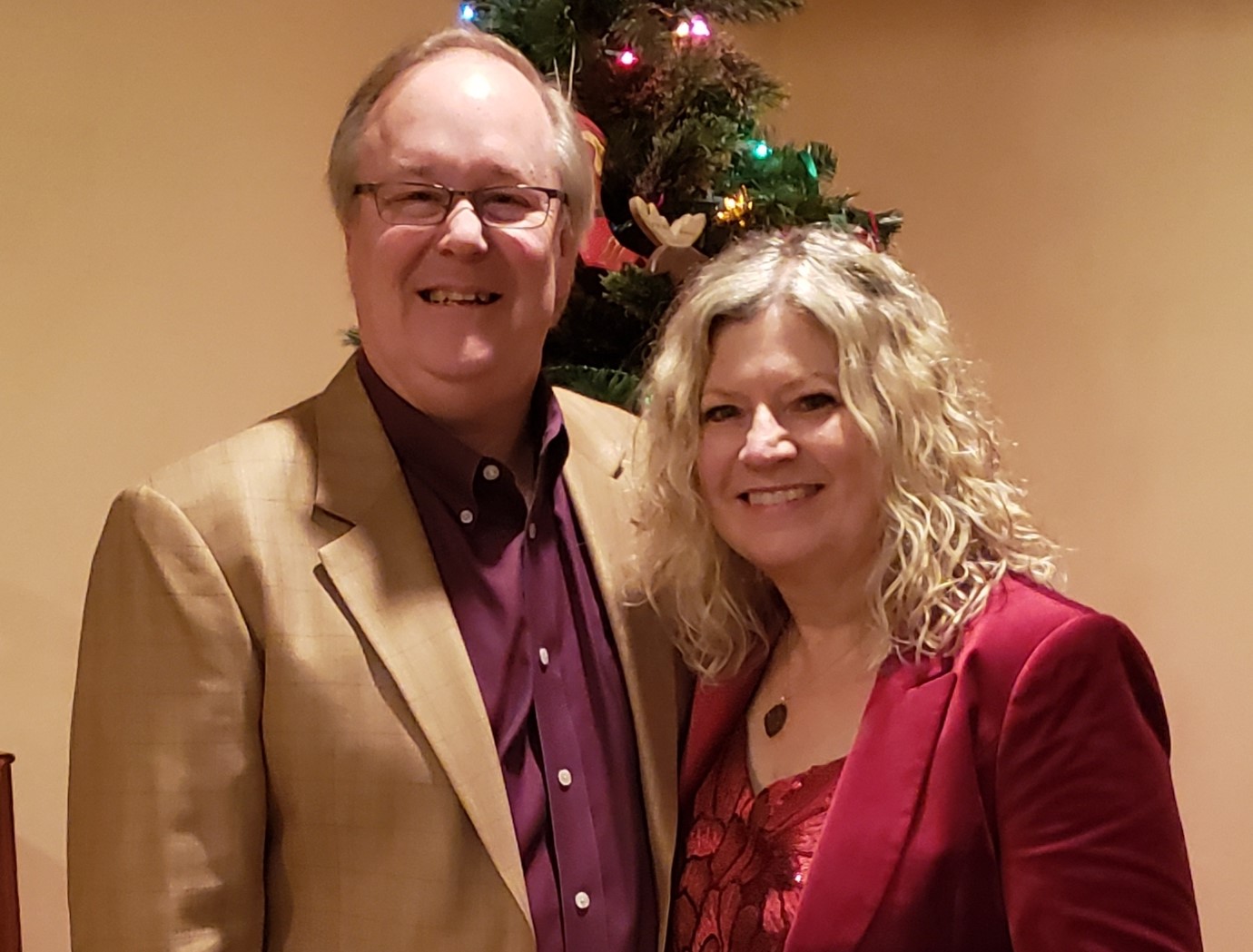Joe Garnett ‘82 on jump-starting a law career at the College of Liberal Arts
After growing up in Texas A&M’s backyard, this successful lawyer proudly gives back to the university that launched his law career.

By Rachel Knight ‘18
Editor’s Note: The following is a Series of Service feature from the College of Liberal Arts.
The series highlights individuals who give generously of their time and resources as members of either the Liberal Arts Development Council or the Liberal Arts Advisory Council. Life-long learning and humanities research that matters at Texas A&M University would not be possible without this support.

Joe Garnett ’82, pictured with his wife Ann ’82, gives back to the College of Liberal Arts after jump-starting his career as a lawyer at Texas A&M University.
Ten years after graduating from Texas A&M University, Joe Garnett found himself representing some of his childhood friends and neighbors in a gas storage facility explosion case. A salt gas storage facility in Wesley, a small community southwest of Texas A&M, began leaking natural gas in 1992. As it vaporized in the air, it created a cloud that engulfed the little valley. When the cloud ignited, it created an explosion so large that it registered on earthquake detectors in New Orleans.
Garnett and his team won handsomely for their clients. This was just the beginning of a flourishing legal career that was built on the foundation of his degree from the College of Liberal Arts.
Garnett said his degree in psychology molded him into a successful lawyer by making him a better listener and more attuned to other people. While he’s had great success in his career, Garnett did not always want to be a lawyer. We chatted on the phone with Garnett to learn more about his story. This interview, which was condensed and edited for clarity, may awe and inspire you.
Tell me a little about your childhood.
I enjoyed growing up with 9,000 other folks in Brenham, Texas, but I always longed to experience life in the big city. I also grew up the son of an Aggie. My father was in the Corps of Cadets and graduated in ‘58, so I was kind of predisposed as an Aggie. I was just biding my time and trying to do well in grade school so I could move on to College Station.
You and your wife Ann were high school sweethearts. Tell me a little about your love story.
We actually met in the sixth grade at a birthday party. We had a few dates in high school during our sophomore and junior years. We started going steady on September 17, 1977, and dated all through our senior year. She actually was going to go to the University of Texas, but I was very persuasive about why she ought to go to Texas A&M instead, which she did after attending Blinn College in Brenham for a year on a twirling scholarship.
We dated continuously throughout college with the exception of a three-month period one summer. During that time we dated other people and realized we had a pretty good match together.
We’ve always had a lot of fun together, because we’re good friends. That’s sort of the basis of our relationship. We love to travel and do things together, so it’s just been a lot of fun.
How did you decide to become a lawyer?
I took a little while to land on a major. My father was a liberal arts major and he always encouraged me to become a liberal arts major, too, and become a better writer and thinker. That’s one of the pieces of advice I relied on. I thought psychology was interesting, so I picked that as my major. My goal at the time was to go to medical school.
As you know, I didn’t go to medical school. I applied for medical school and got an interview with the University of Texas Medical Branch in Galveston. I was interviewing with an orthopedic surgeon, and he said, “Look, you have great grades, but your MCAT is right on the line of getting in. Why don’t you just retake the MCAT and try again next year?”
My thought at the time was, “No, I don’t want to waste another year.” I remembered the line in Animal House, “Premed, prelaw, what’s the difference?” So I said, “I’ll go to law school.”
Who were some of your favorite professors at Texas A&M?
Top of the list would be Arnold LeUnes, who taught abnormal psychology. I got to do an internship with him there. In fact, I did a lot of background research for one of his articles that was published in Psychology Today, which discussed using a psychology test to identify athletes who will perform the best on that particular day because of their mental makeup. Some of the concepts Dr. LeUnes wrote about in the ‘70s are now starting to be used today.
How has your degree in psychology from Texas A&M impacted your life and career so far?
I can’t say that I practice any psychological concepts. I think the takeaway from my psychology training is that I’m a better listener and I’m more attuned to other people, how they act, and what they say. It’s more about opening your mind to outside stimuli and hopefully being able to better read what that stimuli tells you.
Tell me a little about your work in the 1992 Brenham explosion case.
We ended up going to trial and got a big win for our clients. It was very satisfying to help them at that time. I got to learn how a natural gas storage facility is built and how it works, which was a cool thing to learn. I wouldn’t say I was an expert, but I certainly knew a lot about the engineering of this particular type of facility and what went wrong. That was exactly my job at trial, explaining what and how exactly it happened, why it happened, and whose fault it was.
Why is it important for successful people like you to recognize the value of a liberal arts education?
My liberal arts background helped me better understand and learn the concepts to become a lawyer. In the liberal arts, you’re learning how to think critically. You also learn how to write. That’s been a big help in my legal career, because I spend a lot of time writing letters, briefs, and legal memoranda.
It’s amazing how many young lawyers I see who have been through college and through law school, and still don’t write very well. A lawyer must be able to write and write persuasively. That’s one of the ways a liberal arts education is very valuable.
What makes Texas A&M University stand out as a university that you want to serve and support?
Texas A&M just has that camaraderie that other places don’t have. Because my experience was so good, and the people I met were so interesting, intelligent, and talented, I want to do my part to keep Texas A&M a top-notch educational institution. One of the reasons I like to give money to Texas A&M is because of what Texas A&M gave me. I want to make sure the Aggies who come through behind me have the same quality experience.
In your opinion, why is it important to give to higher education in general?
Society needs universities like Texas A&M to continue to educate and graduate people who are well prepared, entrepreneurial, and are going to increase the productivity of our workforce. If we fail in that mission, our way of life and the United States’ technological edge over the rest of the world will go away. It’s vitally important that we continue that pipeline of prepared and educated workers.
What books are on your nightstand right now?
I just finished the book that was written by Chip Gaines from the show Fixer Upper. It’s called Capital Gaines: Smart Things I Learned Doing Stupid Stuff. It was very entertaining. He is the eternal optimist and believes in hard work. In the last chapter, he makes the important point that everyone needs to find a career skill that they enjoy doing every day. If you’re not in an occupation where you’re excited to get up and go to work every day, then you need to go find something else that makes you excited.
The book I finished before that was Shoe Dog by Phil Knight, who is the founder of Nike. It tells the story of a new college graduate who has the idea to market Japanese running shoes to high school and college students and follows his career all the way up to the success that he had in creating Nike. He was close to filing bankruptcy twice, survived and parlayed a small shoe business into a huge sports apparel behemoth.
What do you want your legacy to be at Texas A&M University?
I am thankful for what Texas A&M gave to me. It jump-started my career by giving me the best liberal arts education possible. I want to give back through my service to the Liberal Arts Development Council, and pass on some of the things I experienced in my career so that others can hopefully follow and be successful, too.
